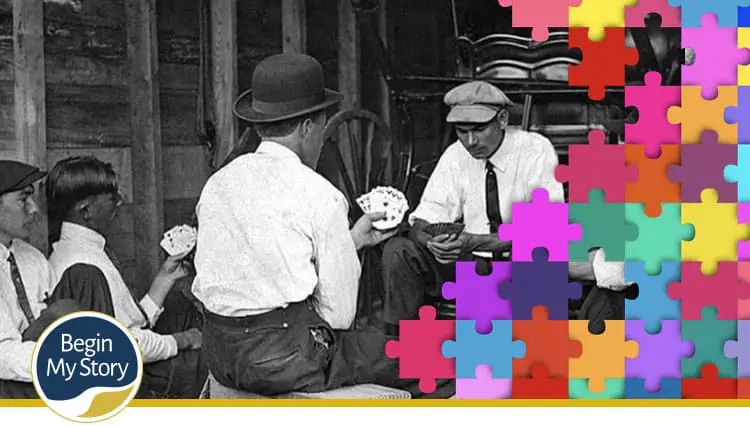
Genealogy tip 11—Expect the unexpected in ancestry research.
Being a history researcher comes with the need to learn and understand how to research records, find the key information and develop a plan that will take you to all available information. Through the years, I have had the pleasure of conducting historical and genealogy research throughout the United States and Europe. Every time I conduct research in a new location, I feel like I have to learn/relearn how to conduct historical research. Why? I need to learn where the records are kept, what is available, develop a plan of how to research this location and so much more. I have written a series of Genealogy Tips to introduce you to what I consider to be the most foundational skills I use over and over. In this article, I want to share Learn about Genealogy Tip 11: Expect the Unexpected in Genealogy Research.
Table of Contents
ToggleGenealogy Tip Series
Click on an of the following Genealogy Tips to be taken to the article.
Genealogy Tip 11: Expect the Unexpected in Ancestry Research
One of the first lessons I learned in genealogy was to count on surprises, to “expect the unexpected.” Life is all about the unexpected—the good, the bad, and the crazy. I have found many unexpected bits of information in my own research, such as the following examples:
Shortly after my Mom died in 1997, I was interviewing one of her childhood friends. At the end of the interview, I was presented with a scrapbook she had kept on her friendship with my mother over the years, including cards, photos, news articles, and much more.
When I was researching the life of a step-father, I uncovered the fact that, at one time, he had been a member of the New Jersey mafia and was forced to leave the state when a contract was placed on his life. One clue led to another, and I finally found family connections in New Jersey.
I had been told of a family rift over the “stealing” of land and water rights during the 1920s. After investigation, I found the land was lost due to taxes not being paid. Another family member bought the land for the cost of the taxes.
In a diary of a relative, I found accounts of abuse and deep sorrow that were never discussed openly or known by anyone other than in the lines of the journal.
Managing the unexpected
When you find the unexpected, it may take some getting use to. The unexpected usually happens when we move beyond the dates and explore court and land records, newspaper clippings, journals, letters, and other, more personal records.
In today’s world, it’s hard to imagine keeping a marriage, birth of a child, serving a prison sentence, or some other major life event a secret in the family. But remember: in the past, family members lived far apart and were unaware of day-to-day happenings miles away. Personal lives were more private than in today’s wide-open, anything-goes world. Whatever news was passed on to the rest of the family went through a sort of “public relations” clean-up to make it sound better.
The basics of handling the unexpected are simple: Sometimes the information will be used to help you in your research or to tell a story, but sometimes it may be best kept a secret. Be respectful of the living and their wishes, especially if the information is sensitive. In my own case, I can only think of one unexpected piece of information that I chose to leave a secret. It had no value to the living or the dead, to genealogy or a good story. So enjoy your research and the unexpected information that will turn up along the way!
Additional Articles on BeginMyStory.com
The following are other articles you may enjoy to help you find history and genealogy records.
- QuickStart Beginners Guide to Ancestry Research
- Introduction to Ancestry Research and Historical Records
- 7,500-plus Questions About Life to Ask People When Writing Narratives
- 1950 U.S. Census Research Guide for Beginners
- 4 Easy Steps to Google American Ancestry
- Preparing to Easily Google Ancestor Records
- Complete Guide for Conducting Oral History Interviews
- How to Get Great Google Search Results in Ancestry Research
- 9 Advanced Google Search Strategies to Trace Ancestors
- What It’s Like to Start Ancestry Research
- Search sites like FamilySearch.org, Ancestry.com, MyHeritage.com






